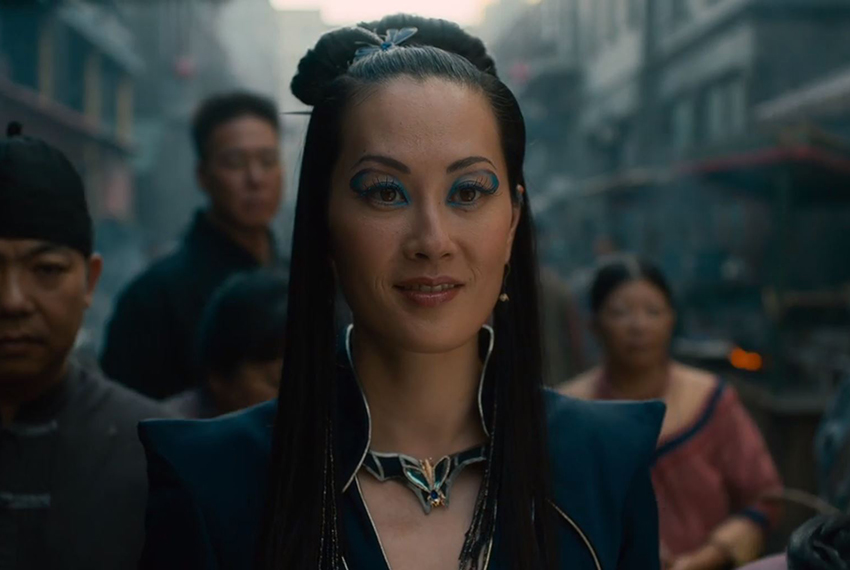
When your co-stars are flipping around, single-handedly knocking out mobs of enemies with flashy kicks and nun-chuck flourishes, it takes a special actor to make their character really stand out. Olivia Cheng definitely does that with Ah Toy. In the first season of Warrior, Jonathan Tropper and Justin Lin’s martial arts drama series based on the writings of Bruce Lee, we were introduced to Cheng’s complex madam who ran the Hop Wei’s brothel and took a special liking to series lead Andrew Koji’s Ah Sahm. As we learned though, she did a lot more than that.
With her ward Lai, Ah Toy also helped to dispense justice via sword for those who wronged her community in 19th century San Francisco’s Chinatown. Of course, the real Ah Toy never did that. Yes, the real Ah Toy, as Cheng has the distinction of playing the only real-life historical figure in Warrior. Chinese-born, the real Ah Toy travelled to America with her husband via passenger ship during the California Gold Rush. When her husband fell ill and passed away during the voyage, Ah Toy was forced to become the mistress of the ship’s Captain so as to protect herself, eventually leading her to reportedly becoming the very first, and most famous and well-paid, Chinese prostitute in San Francisco.
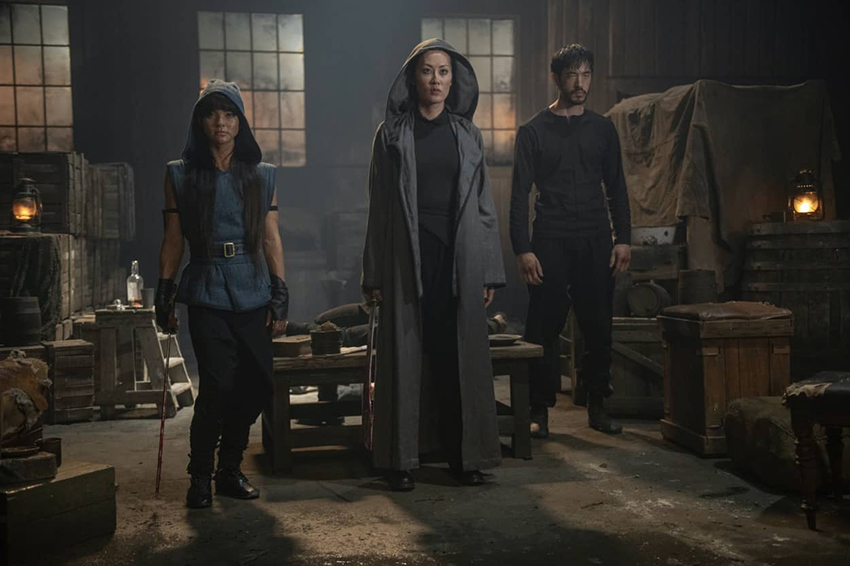
We got early access to Warrior season two, and as we learn in it, there are distinct aspects of the real Ah Toy that we see in Cheng’s version. Nick and I had the honour of speaking to the actress via Zoom last week, where she revealed that her character is “95% imagination” though.
There is absolutely nothing I know of that exists from her mouth, her words, telling her story. So if you look up Ah Toy, you see some history buffs writing about her but it’s almost like this myth and legend-like quality.
But I remember reading something like she was arguably the first Asian woman to use the US court system to protect her assets and protect her business. So that right there tells you what a baller this woman was, and that in a different time or place she probably would have been the CEO or the groundbreaking female leader of some kind of industry because she was that smart. To land in a country that’s not your own, and in a system that speaks a language that is not your own successfully lobby to use it and use litigation on your own behalf.
While Warrior’s version of Ah Toy hasn’t really performed any historical feats on that level, she is a rather complex character in her own right, that took major thematic cues from her real-world counterpart.
It was little nuggets like that that helped Jonathan Tropper – who was very fascinated by the real Ah Toy – create our version of her… On one hand, she is a mob boss in her own right holding it down with all the crime city kids in the family of Chinatown. And yet, on the other hand, she’s a disrupter with this altruistic streak.
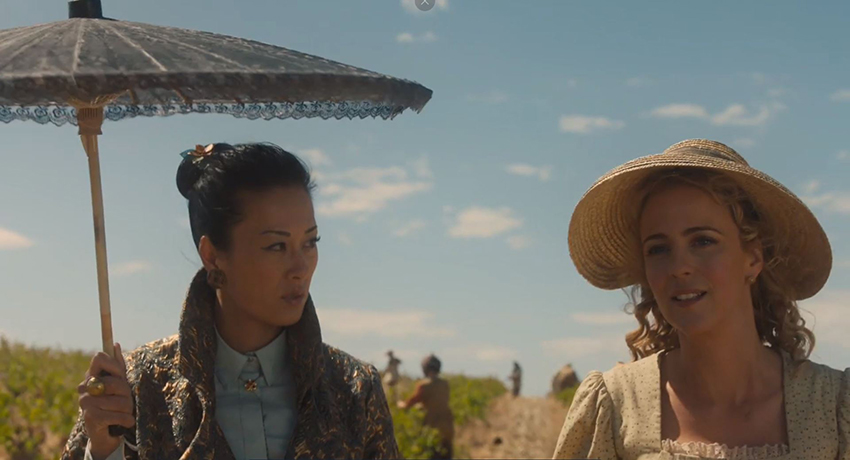
That back and forth balance between criminality and altruism forms a huge part of Ah Toy’s story in season two. And as Cheng, explained, getting that duality right is thanks to Warrior’s fantastic writing team realizing the “terms of the conflict and the contradiction of her situation and her heart.” Her heart is specially tested thanks to the introduction of Miranda Raisson’s Nellie Davenport, a wealthy widow who uses her means to offer girls in trouble a safe refuge at her vineyard, forcing Ah Toy to realize that there are alternative methods of doing things than how she’s been doing them.
I think the writers really gave me a lot to play off of. Even in transporting me to Nelly’s vineyard and putting me into a situation that is so outside of the norm of Chinatown and, in fact, reconnects me to nature and reconnects me probably to a part of my nature that has gone dormant in order to survive.
Although born in Canada, Cheng is the daughter of Cantonese-speaking Chinese-born immigrants. So much of Warrior is the story of immigrants who find themselves in a new country where nobody understands them, just trying to make a better life for their families, so we had to know if Cheng’s personal history helped to inform her version of Ah Toy. As the actress explained, her grandparents took care of her while her parents worked, and even as a child, she picked up on how they interacted with the mainly white European population of Edmonton.
There were times where I would witness things that i didn’t understand as a child but I knew that you know my grandparents weren’t being treated right or they were being talked down to or they were being talked to like they were children. Because they’re not stupid they just don’t understand the same language.
So a lot of the protectiveness I feel for my family is definitely something that easily – easily – informs a character like Ah Toy who sees all of Chinatown as her family. And I think she has a recognition that she is probably one of the only members of the community who has the wealth and independence and ability to think beyond what it’s going to take to survive the next minute, the next hour, the next day. And has the ability and bandwidth to think about what’s going to happen for the community at large for everyone to survive let alone thrive.
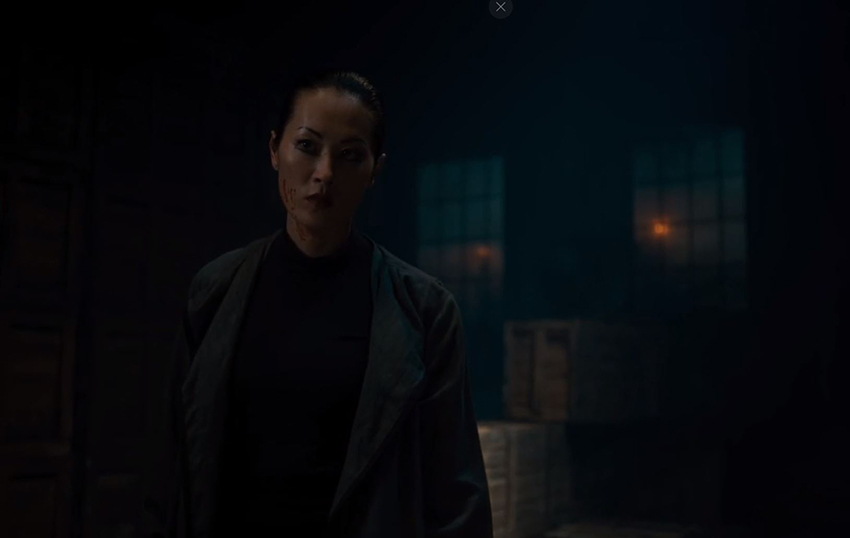
Another source of inspiration actually came from right here, as Warrior was shot in our very own Cape Town, South Africa. With racial conflict being one of the show’s primary stories, it, unfortunately, boasts parallels with our country’s troubled historical and political background. Cheng, herself, was not overly familiar with that background before coming here to shoot, but it definitely made an impact as soon as she and the rest of the production landed.
It was so fascinating for me to be in Cape Town because it is one of the most racially complex places I’ve ever experienced. And the history and the spirit I think I could feel because of all that complexity was just something that was never lost on me. That we were shooting a show about… I want to be careful about using this word because I know it’s a term that has so much significance in history for South Africans… it was not lost on me that we were shooting a show almost about the Asian Apartheid of America in a country that endured and overcame its own Apartheid and really became such a beacon of what’s possible to the rest of the world.
Helping the international cast and crew of Warrior understand those parallels with the show even more was the fact that the locally-based Chinese members of production shared their own personal accounts of Apartheid.
We started to understand that, wait a minute, Apartheid technically just ended 25 years ago, so that means you would have been born and lived through that time. And we started asking our extras for stories and there was this one extra – I believe his name was Jeff – and he told his story to Jason Tobin and started crying because he talked about how growing up Chinese in South Africa he felt like he was the lowest of low. Because on one hand they were treated so badly by the colonizers – I believe that’s the Afrikaans – and then, on the other hand, they were also so outnumbered by the black and coloured community.
And he also experienced the white government coming in and with no warning bulldozing his father’s shop. Not even giving his father time to run in and grab what he could. It represented their family’s whole livelihood and his dad came home just crying because their whole life had just been wiped out, his entire means of supporting the family was just wiped out. And we started hearing stories like that from the Asians on our set and we started to understand how meaningful it was for them to not only see that a story like ours was coming to life but that they got to be a part of it.
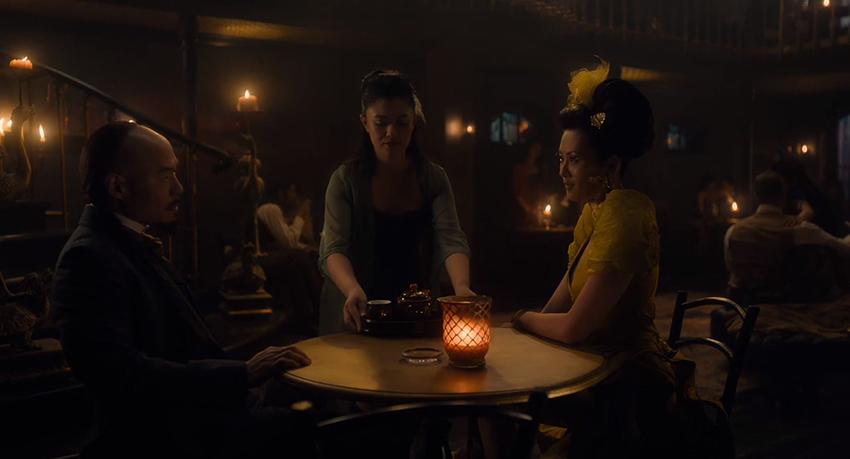
Asian representation is at the very heart of Warrior, not just because of what is happening on-screen. Reportedly, back in the early 1970s, Bruce Lee had pitched his TV series story idea for “The Warrior” – about a Chinese martial artist wandering the Wild West to find a family member – to numerous studios, including Warner Bros., but got turned down by all of them as it was reportedly apparently consider a business risk to have an Asian lead. Only for WB to launch the show Kung Fu a few years later which followed the same story beats but now starred American actor David Carradine.
When the likes of Crazy Rich Asians debuted to massive global success a few years back, it appeared that Hollywood was finally starting to right some of those historical wrongs. That representation of Asian people and stories on-screen is something that Cheng is very passionate about, saying that she hopes it’s becoming a bigger thing, but which unfortunately she feels has stalled out a bit again.
if you’d asked me that question in 2018 I think I would have been so much more optimistic. I feel a little more cynical about it now. I’m just being honest, because the other day someone actually sent me a report that I could pull up and screen share with you guys right now and it was a breakdown of representation for Asians, Latins, Blacks, LGBTQ and other marginalized communities within like the top 100 grossing films in 2019… female directors you know behind the screen. and the statistics were abysmal really.
So I think the perception, because you’re seeing something and you have these fantastic you know publicity teams who are getting them out there, it is hopeful. do not get me wrong. I am so happy when I am starting to see all these young Asian actors who are getting opportunities that just weren’t around for the first 10 years of my career. And it’s a great sign to me that I’m like “I don’t know that person I’ve never seen that person,” because that to me tells me that there is change happening. I think I’m just cautiously optimistic right now about giving that sound bite “We’re on our way!”. I’m not trying to be Debbie Downer. Just let me save the praise for when it’s really earned.
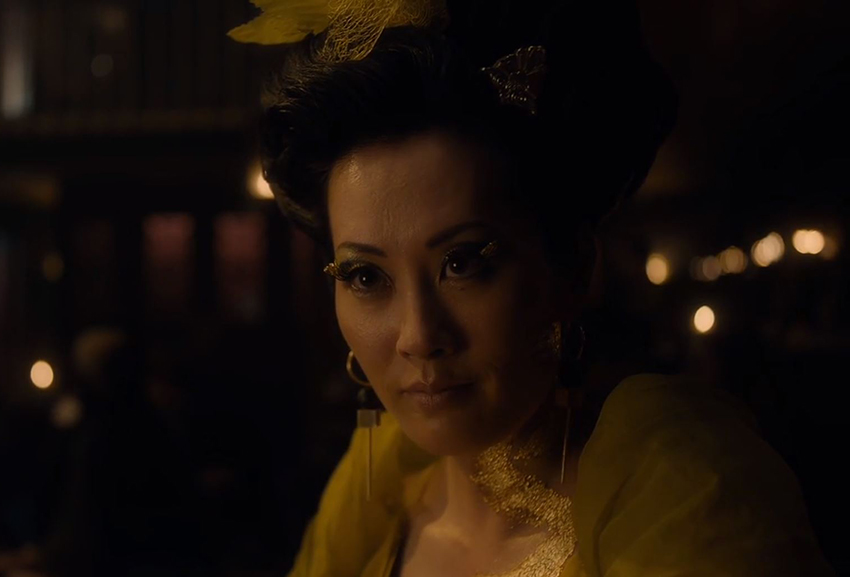
Warrior is definitely doing its bit to earn that praise. Not only is the show doing a good job in terms of representation, but its second season is just damn good television. We’ll have a full review out later this week on top of additional interviews with other members of the cast over the next few days.
Until then check out the full interview below, which also includes Cheng geeking out over Cape Town (even throwing in her best “Howzit, bru!”), the “creepy” but funny things she had to do to help get Chinese extras to work on the show, and her expressing her absolute heartfelt disappointment that she never got to experience the majesty of eating a gatsby when she was here.
A note: At one point during the interview, Cheng mentions that she hopes Warrior will be “uncancelled”. Just to clarify, Warrior has not been officially cancelled. What’s happened is that US cable network Cinemax has stopped creating any original shows, which at the time of this interview left Warrior and several other productions without a home. Just days after this interview though, sister network HBO Max agreed to air both the first and upcoming second season of Warrior at some point in the future, with the expectation being that if the audience responds, they will do more.
Warrior season two will debut on Cinemax this coming Friday, 2 October 2020, while locally it will be airing later this year on Showmax where you can also catch up with season one.
Last Updated: September 28, 2020






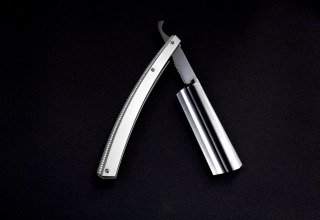














RinceThis
September 28, 2020 at 16:36
This show needs more attention. It’s superbly shot, and very topically relevant. Also, kick ass fight scenes! Also… HONG!